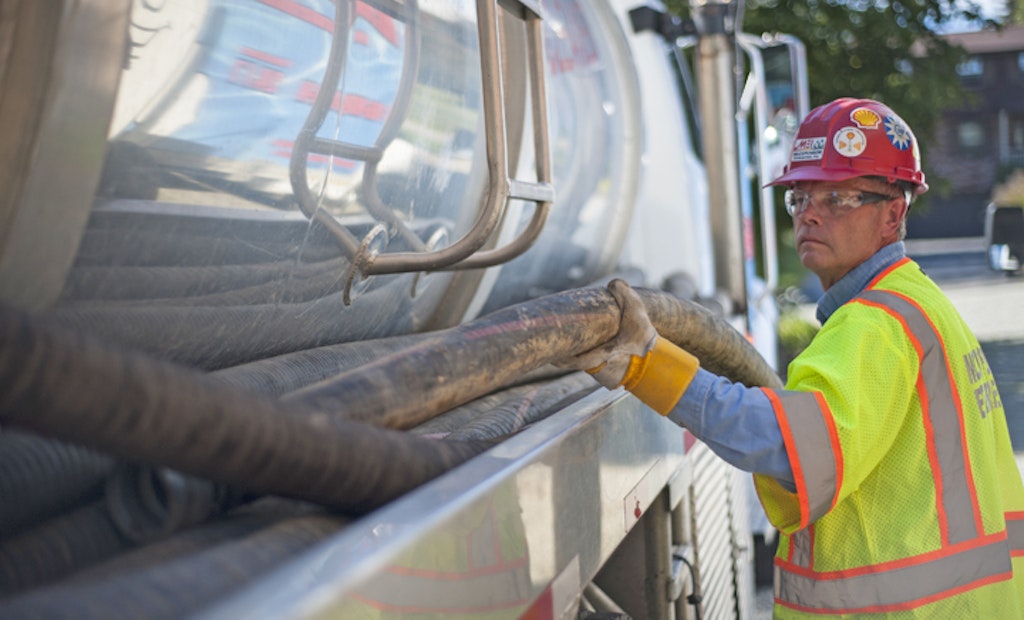
Interested in Business?
Get Business articles, news and videos right in your inbox! Sign up now.
Business + Get AlertsYou’ve been in the septic pumping business for decades, so your knowledge of best practices, safety measures and equipment buying is extensive. But perhaps some of these industry issues are so engrained in your day-to-day operations that you’ve never stopped to consider whether what you’re doing is beneficial or detrimental to your pumping business.
Have you skipped over a news story about a pumper on the other side of the country because you think it doesn’t affect you? Do you assume you’ll never get hurt on the job?
For those pumpers new to the industry, these issues might not be bad habits, yet, but let’s make sure they don’t become regular practices.
Let’s put some septic pumping myths to rest.
1. Issues facing pumpers in other parts of the country don’t affect my business.
False. As Septic System Answer Man Jim Anderson points out in his recent article, pollutant removal issues for individual onsite wastewater practices in the Chesapeake Bay watershed could definitely come full circle for septic pumpers nationwide. Anderson served on a panel to review these practices.
“The primary objective was to review documentation, and provide concise system definitions and percent reductions for nitrogen load reduction practices that could then be used in a model to evaluate how changes in practices will impact nitrogen loadings to Chesapeake Bay,” he says in the article.
So if you’re a pumper in Texas or Minnesota or Florida, why should this study interest you? Because the microscope now focused on the Eastern Seaboard will eventually turn elsewhere. What happens in the Chesapeake Bay watershed has the potential to impact how you will do business in the future by determining what kinds of systems will be installed in those areas.
If you’re in the Midwest, think about the “dead zone” in the Gulf of Mexico caused by excess nitrogen delivered through the Mississippi River. If you’re in California, think of the San Francisco Bay.
2. It won’t happen to me. I’ll never get hurt on the job.
Septic pumpers face countless hazards on a daily basis. Everything from bacteria and disease-causing pathogens to back injuries and snake bites.
You practice safety on the job — most of the time. But that one time you let your guard down is precisely when hazards occur. They happen regularly, and they can happen to you.
In another Septic System Answer Man column, Anderson outlines a few of the many ways you, and your workers, can get injured on the job.
Lifting: In this line of work, lifting is always going to be involved, putting the technician at risk. Whenever it’s possible, take advantage of mechanical equipment to avoid heavy lifting.
Bites and pokes: Insect and snake bites and poisonous vegetation aren’t often discussed, and the severity of these varies by region. A good rule of thumb? Never place a hand where you can’t clearly see any dangers.
Above all else, use common sense for on-the-job safety.
3. Equipment purchases today won’t impact long-term company cashouts.
In a Money Manager column, Erik Gunn explains how today’s equipment purchasing decisions will have an impact when it comes time to cash out the company.
Whether you’re pinching pennies or spending heavily, be careful to consider how today’s investment will affect your bottom line in years to come.
You face scores of decisions when it’s time to buy new equipment: Will this equipment make my business more productive? Will I be able to generate the cash flow to pay off the loan? Is it good for my business?
And some of these decisions have even longer-term implications still – not when you buy the equipment, not even necessarily a year or two later.
Instead, those turn up when you decide you’re ready to retire and sell the business to someone else. And that’s true whether you’re selling it “in house” to a business partner, your children or your employees, or whether you put it on the market and sell it to the highest bidder among a bunch of strangers.
So buyers beware, and be sure you’re thinking long-term not immediate gratification. Here are 8 Tips for Vacuum Truck Shoppers.
What are some of your septic pumping myths? Post a comment below.






